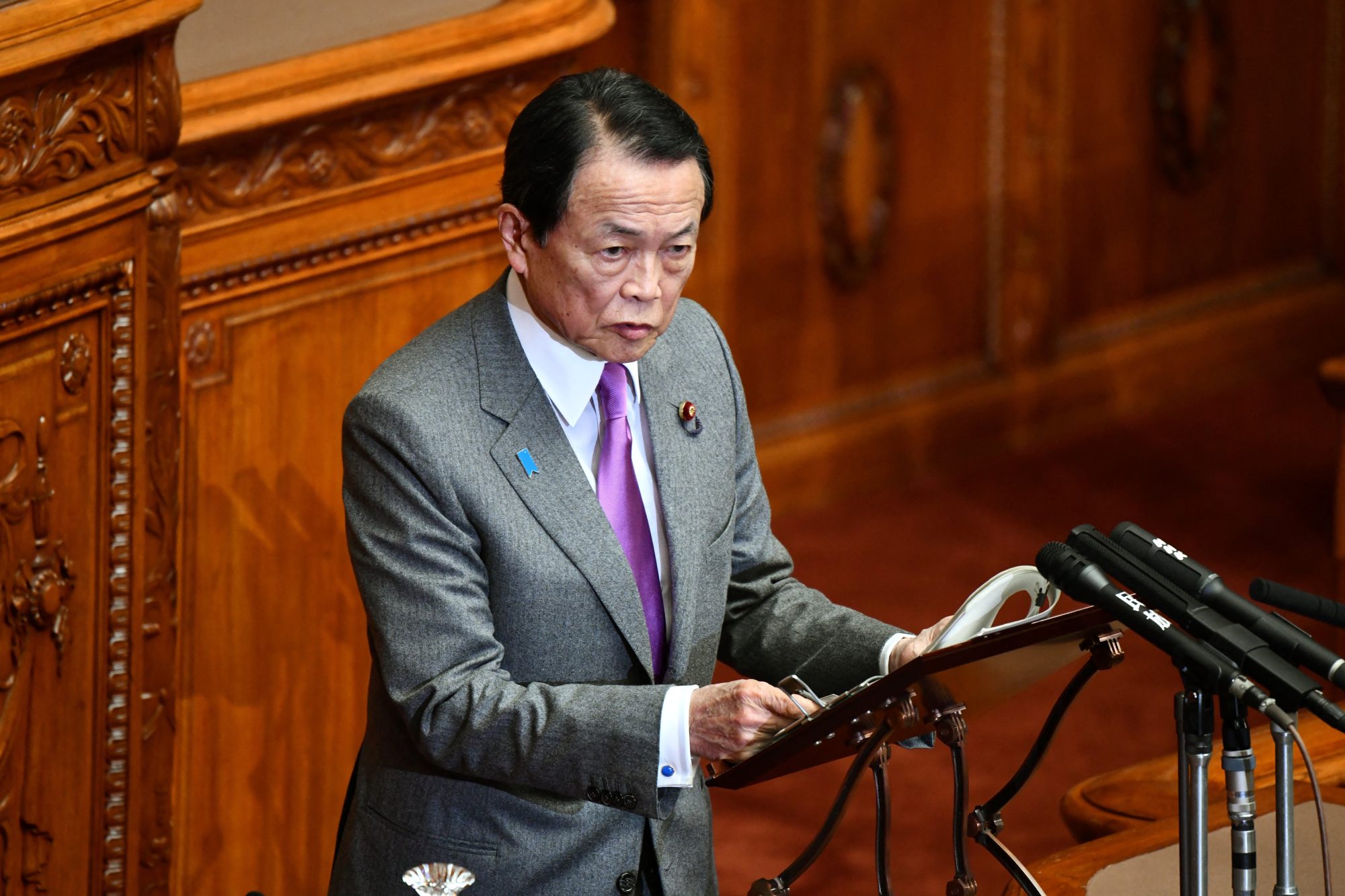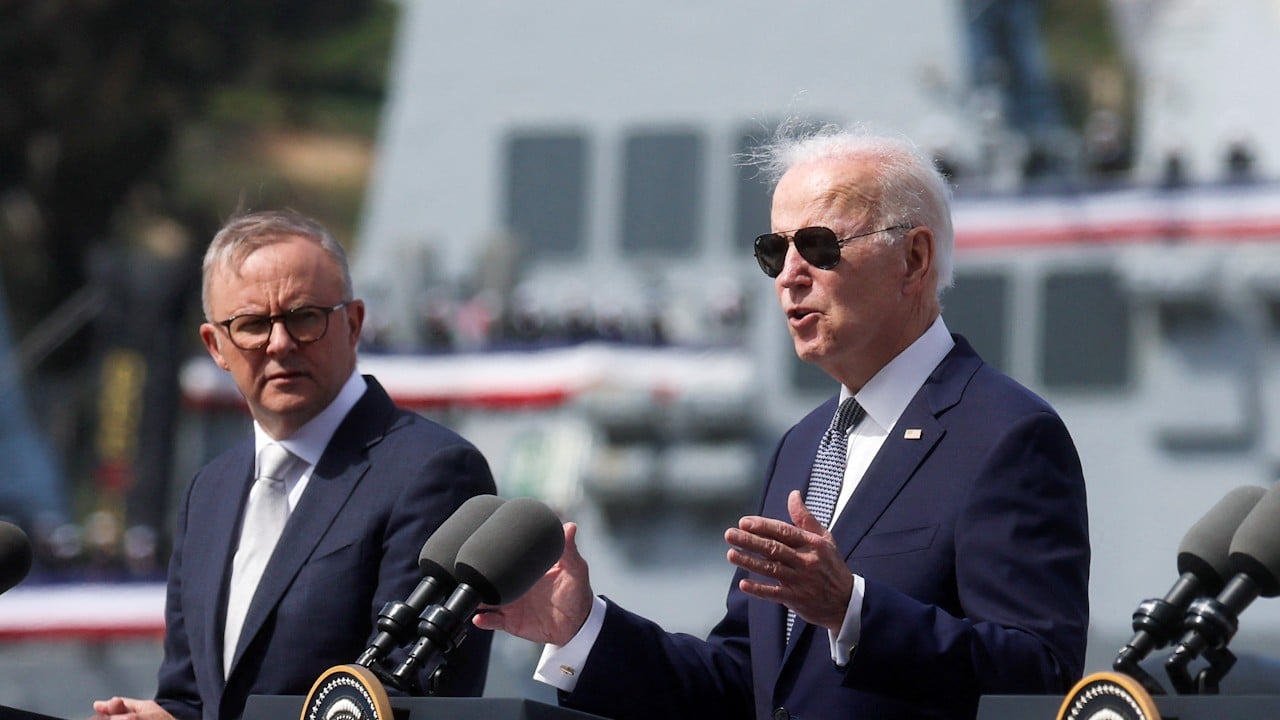“What defence minister [Marles] is rightly saying is that the Australia-Japan security partnership has developed and become clearer, and there is a desire for deeper cooperation,” said Ben Ascione, an assistant professor of international relations at Tokyo’s Waseda University.

“I think it is natural that we would be talking about a greater level of cooperation between the three countries – the US, UK and Australia – and Japan, in terms of joint collaborations,” Marles said.
Ascione from Waseda University said: “I do not think there is any intention to engage Japan in what is known as the ‘first pillar’ of Aukus, which is the delivery of nuclear submarine technology to Australia by the US and UK, because it would be very difficult to convince them to release that technology to another country, while there are also domestic constraints in Japan on nuclear technology.
“But there appear to be growing opportunities to cooperate beyond the ‘first pillar’, on artificial intelligence, hypersonic missiles and elsewhere.”
Japan joining Aukus: the ‘logical choice’, but would it be a full partner?
Japan joining Aukus: the ‘logical choice’, but would it be a full partner?
The move would align with Japan’s plans to develop a missile counterstrike capability, such as the purchase of Tomahawk cruise missiles from the US. In his interview, Marles suggested that Japanese forces would be welcome to use Australia’s vast military ranges to test its long-range missiles.
“There has been a lot of progress in bilateral ties, but there are lot of complexities in Japan joining a broader multilateral framework,” he told This Week in Asia.
Aukus is “quite a specific alliance” that is primarily focused on the delivery of advanced nuclear submarine technology to Australia, said Hinata-Yamaguchi, adding: “So it would not be as simple as Japan just joining automatically.”

Similarly, suggestions for the creation of an Indo-Pacific version of Nato were unlikely to progress, he said.
“A lot of people have been talking about it, but the effort that would be needed would be huge and there would be many, many issues that needed to be addressed, all of which takes time,” he said. “Nato and the EU took years to set up, but the Asia-Pacific needs to be addressing its security concerns right now.”
Hinata-Yamaguchi said he believed the growing network of alliances across the region, including Japan being asked to cooperate with Aukus on developing new weapons, was a faster and equally effective way of countering challenges, rather than attempting to institutionalise a vast, multinational organisation.
During a visit to Canberra in November, Japan’s Deputy Prime Minister Taro Aso expressed deep concern about the possibility of Beijing invading Taiwan, and urged closer cooperation between Tokyo and the three member states of Aukus.
Claiming that dealing with China would be a “long marathon”, Aso proposed that Japan be added to the agreement to become a so-called Jaukus.
Beijing has pushed back firmly against the development or enlargement of the alliances set up among its rivals in the region, with an editorial in the state-run Global Times newspaper in late October warning against Japan being invited to join Aukus.
Describing Japan as the “most obedient ally” of Washington, the article claimed that should Tokyo join the alliance it “will create more strategic instability for the whole Asia-Pacific region, and regional countries should be highly vigilant toward Tokyo’s intention in this regard”.
It added that Washington would have little compunction in using Japan “as a front-line military base against China and Russia” and “sacrifice Japan’s interests in a bid to safeguard its homeland security and defend its hegemony”.
Waseda University’s Ascione said China was likely to respond to suggestions of a closer collaboration between Japan and Aukus through its state-run media, if it perceived Tokyo’s purchase and deployment of a counter-missile capability as an effort to change the balance of Beijing’s nuclear deterrent capability.


